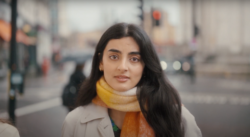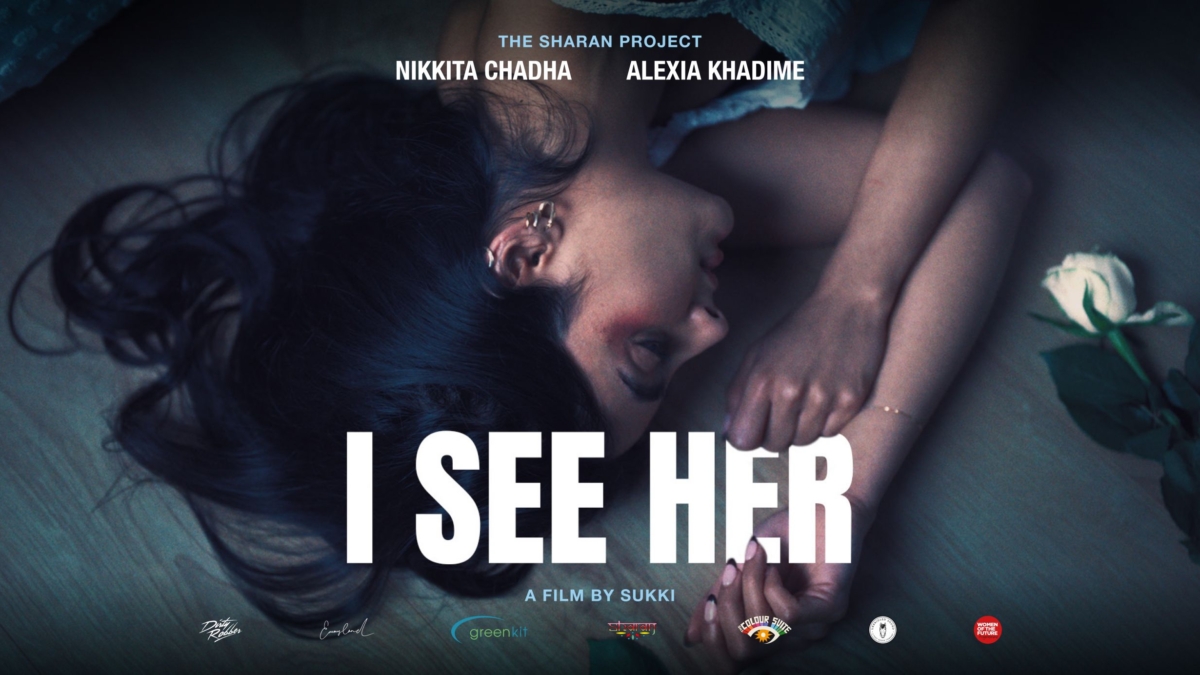In a world where domestic violence cases have intensified since the start of the pandemic, SUKKI sought to raise awareness and stir bystanders to action. “I See Her”—an official selection of several awards and festivals including The British Academy Film Awards and British Independent Film Awards qualifying festivals—delves into the complexities one often confronts when deciding to intervene. SUKKI, a renowned campaigner on women’s rights, wrote and directed the film in a compelling call for change.
“We have to shout so others can speak,” said SUKKI. Having grown up in a very conservative family, SUKKI spent much of her life committed to carving out a path true to herself. She found herself navigating a world full of taboos, where she pushed back and challenged preconceived notions about women. This story of activism for women’s rights around the world, along with her own strive to break free from the shackles of self-repression, is reflected in the film.
The film presents a storyline that encapsulates a pivotal moment in the life of the protagonist, who is (played by Grammy-nominated West End star Alexia Khadime). We witness her internal struggle as she becomes aware of an abusive situation that her neighbor (Nikkita Chadha) is trapped in, but hesitates to intervene. Her journey serves as a metaphor for the inaction that many individuals face when confronted with signs of abuse. The film’s message, “Everyone can do something,” urges viewers to overcome their fears around intervening to make a difference. Intervening in cases of domestic violence can come with intimidation by the situation warranting reluctance in taking action.

Having been created in collaboration with The Sharan Project, a United Kingdom-based non-profit that serves survivors of both forced marriage and domestic violence, the film serves as a PSA and reminder of a bystander’s power to help women who experience abuse. The film’s portrayal of a bystander who finally takes action resonates with anyone who has felt alone while feeling paralyzed by their own internal conflict.
“I See Her” is not just meant to be a work of art, but a powerful resource.The film has no dialogue, and uses music composed by SUKKI and Producer and DJ RUTHLSS. The primary medium of only sound effects and music transcending language barriers. By making the film accessible to a global audience, it underscores the universality of the issue and reinforces the idea that violence and abuse occur all around us, affecting women and girls in every community. The message is clear: We must be willing to see the people around us who are being affected by domestic abuse.
“I See Her” brings to light how easy it can be to continue living in abusive circumstances. There is a shot in the film that zooms out of a regular suburban neighborhood, showing how the victim is just another resident living among many others. The victim’s room is decorated with fresh flowers, seemingly tidy and inviting. Then sounds and lighting unfold the dark reality of the abuse, and the fresh flowers are smashed on the floor. SUKKI shows us that domestic violence can be found in unexpected places. Many victims conceal their lifestyle with order and aesthetics.
The film also explores the significance of physical contact, visualizing how a mere bystander can offer solace and support to the victim. Khadime’s character literally reaches a helping hand over the fence separating her from Chadha’s character. Chadha’s character is met with her neighbor’s warmth and compassion, which stir feelings of hope as she holds the hand of Khadime’s character. The film shows what’s happening in her head: A life free from abuse.
“In a world of mobile phones and closed homes, in a world where everyone is more connected than we’ve ever been and yet so painfully disconnected, there’s never been a more urgent time for us to find our way back to each other again and look out for one another,” SUKKI said. “There’s never been a more urgent time to believe that everyone really can do something. We need to stop looking down at our screens so much, and start looking up at our neighbors, at strangers who might need us. “I See Her” is a resounding message that we should no longer define films by their cultural labels but rather by their ability to touch hearts, inspire change, and empower people of all backgrounds.
You can register to join the waiting list to stream the film on the official film site: www.iseeherthefilm.com
Watch the trailer below:

